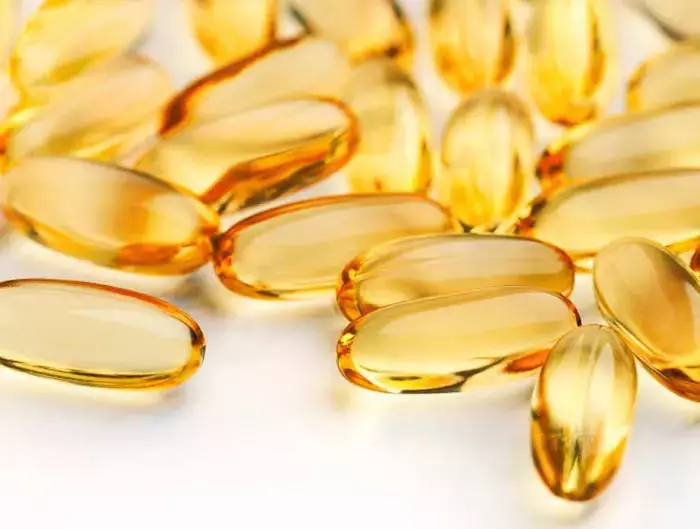- Home
- Medical news & Guidelines
- Anesthesiology
- Cardiology and CTVS
- Critical Care
- Dentistry
- Dermatology
- Diabetes and Endocrinology
- ENT
- Gastroenterology
- Medicine
- Nephrology
- Neurology
- Obstretics-Gynaecology
- Oncology
- Ophthalmology
- Orthopaedics
- Pediatrics-Neonatology
- Psychiatry
- Pulmonology
- Radiology
- Surgery
- Urology
- Laboratory Medicine
- Diet
- Nursing
- Paramedical
- Physiotherapy
- Health news
- Fact Check
- Bone Health Fact Check
- Brain Health Fact Check
- Cancer Related Fact Check
- Child Care Fact Check
- Dental and oral health fact check
- Diabetes and metabolic health fact check
- Diet and Nutrition Fact Check
- Eye and ENT Care Fact Check
- Fitness fact check
- Gut health fact check
- Heart health fact check
- Kidney health fact check
- Medical education fact check
- Men's health fact check
- Respiratory fact check
- Skin and hair care fact check
- Vaccine and Immunization fact check
- Women's health fact check
- AYUSH
- State News
- Andaman and Nicobar Islands
- Andhra Pradesh
- Arunachal Pradesh
- Assam
- Bihar
- Chandigarh
- Chattisgarh
- Dadra and Nagar Haveli
- Daman and Diu
- Delhi
- Goa
- Gujarat
- Haryana
- Himachal Pradesh
- Jammu & Kashmir
- Jharkhand
- Karnataka
- Kerala
- Ladakh
- Lakshadweep
- Madhya Pradesh
- Maharashtra
- Manipur
- Meghalaya
- Mizoram
- Nagaland
- Odisha
- Puducherry
- Punjab
- Rajasthan
- Sikkim
- Tamil Nadu
- Telangana
- Tripura
- Uttar Pradesh
- Uttrakhand
- West Bengal
- Medical Education
- Industry
Vitamin D intake may improve survival in Cirrhosis Patients with Spontaneous Bacterial Peritonitis

Spontaneous Bacterial Peritonitis (SBP) is one of the most serious liver cirrhosis with ascites complications.
A recent study suggests that vitamin D (Vit D) deficiency is prevalent in Spontaneous Bacterial Peritonitis cirrhotic patients and can be used as an independent predictor of infection and death. The study findings were published in the European Review for Medical and Pharmacological Sciences.
There are few studies available concerning the impact of Vit D supplementation on people with Vit D deficiencies, particularly those with decompensated cirrhosis. The effect of Vit D supplementation on mortality rate in those patients is still unclear. Therefore, Dr Amal Ahmed Mohamed and his team conducted a study to assess the Vit D level as a prognostic marker in SBP patients and the impact of Vit D supplementation on their treatment plan.
In a prospective randomized controlled study, the researchers included 328 ascetic patients with SBP and Vit D deficiency and divided them randomly into treatment and control groups. The control group received standard treatment without Vit D and, the treatment group received standard treatment plus Vit D. The researchers evaluated the clinical outcomes of Vit D over 6 months.
Key findings of the study:
- At baseline, the researchers observed an elevated serum and ascetic TLC, AST, ALT, total and direct bilirubin, in addition to elevation in INR and procalcitonin (PCT) level in all patients of both groups.
- Upon univariate regression analysis, they confirmed that the deficiency of Vit D was an independent predictor of infection and mortality (Crude Hazard Ratio: 0.951).
- After 6 months, they observed a significant improvement in serum Vit D level in the treatment group (34.6 ± 9.2 and 18.3 ± 10.0 ng/mL).
- They also observed a statistically significant increase in survival rate (64% vs 42%) and duration (199.5 days vs 185.5 days).
- Upon univariate and multivariate regression analysis confirmed that Vit D supplementation was positively correlated to survival over 6 months (Adjusted Hazard Ratio: 0.895).
The authors concluded, "Collectively, these data suggest that Vitamin D deficiency in cirrhotic patients with SBP is very common. In addition, Vitamin D was found to be an independent variable of infection and death in them, so its administration may improve their response to treatment and survival over 6 months".
For further information:
Medical Dialogues Bureau consists of a team of passionate medical/scientific writers, led by doctors and healthcare researchers. Our team efforts to bring you updated and timely news about the important happenings of the medical and healthcare sector. Our editorial team can be reached at editorial@medicaldialogues.in.
Dr Kamal Kant Kohli-MBBS, DTCD- a chest specialist with more than 30 years of practice and a flair for writing clinical articles, Dr Kamal Kant Kohli joined Medical Dialogues as a Chief Editor of Medical News. Besides writing articles, as an editor, he proofreads and verifies all the medical content published on Medical Dialogues including those coming from journals, studies,medical conferences,guidelines etc. Email: drkohli@medicaldialogues.in. Contact no. 011-43720751


